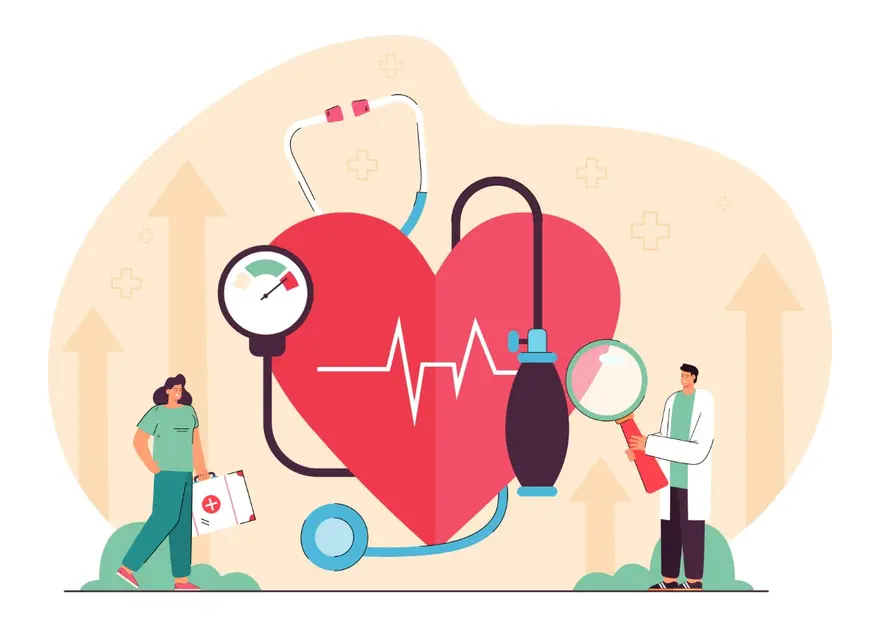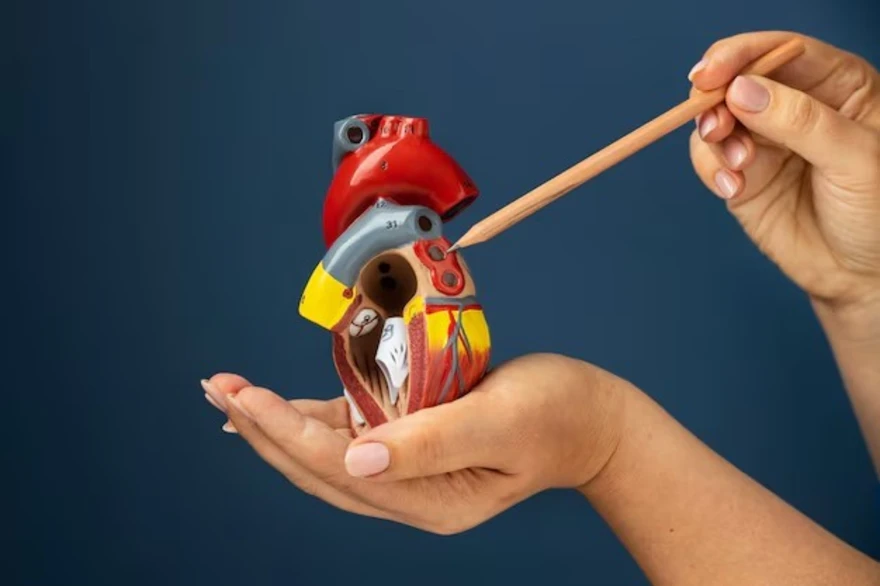Preventive Healthcare
Ischemia: Causes, Symptoms, and Preventing Tissue Damage
168 Views
0

What is ischemia?
Ischemia is a condition in which a part of the body doesn't receive enough blood flow, leading to a shortage of the oxygen and nutrients that tissues need to function properly. When blood flow is restricted or blocked, cells can't maintain their normal metabolic functions, and they may become damaged or even die. Ischemia can affect various organs, most commonly the heart, brain, and limbs.
What are the types of ischemia?
Depending on the body part affected, ischemia types can be classified into several categories:
- Myocardial ischemia: This type involves reduced blood flow to the heart muscle. It's often caused by a buildup of plaque in the coronary arteries (atherosclerosis) and can lead to chest pain (angina) or a heart attack.
- Cerebral ischemia: When blood flow to the brain is disrupted, often due to a blood clot, it can result in a stroke or transient ischemic attack (TIA).
- Peripheral ischemia: This refers to reduced blood flow to the limbs, usually the legs. It's often a consequence of peripheral artery disease (PAD).
- Mesenteric ischemia: This type affects the intestines and can be either acute (sudden) or chronic (long-term).
How common is ischemia?
Ischemic heart disease is the leading cause of death worldwide, accounting for 16% of total deaths. Each year, about 805,000 Americans have a heart attack, often due to myocardial ischemia. Strokes, which are frequently caused by cerebral ischemia, affect nearly 800,000 people annually in the US. An estimated 12-20% of individuals over 60 have some form of peripheral artery disease, putting them at risk for limb ischemia.
What are the symptoms of ischemia?
Ischemia symptoms vary depending on the affected body part:
- Myocardial ischemia: Chest pain/pressure (angina), shortness of breath, nausea, sweating
- Cerebral ischemia: Sudden numbness/weakness in face or limbs, confusion, trouble speaking, vision changes, dizziness, severe headache
- Peripheral ischemia: Leg pain during walking (claudication), coldness in lower leg or foot, slow-healing sores on toes/feet
- Mesenteric ischemia: Abdominal pain after eating, weight loss, diarrhoea, nausea, vomiting
If you experience any of these ischemia symptoms, especially if they are severe or come on suddenly, seek immediate medical attention.
What causes ischemia?
Several factors can lead to ischemia, including:
- Atherosclerosis: A build-up of plaque narrows the arteries and reduces blood flow, contributing to ischemia causes.
- Blood clot: A clot can block an artery and abruptly cut off blood supply to an organ, leading to ischemic conditions.
- Aneurysm: A bulge in a blood vessel wall can burst and disrupt circulation, resulting in ischemia.
- Vasospasm: A sudden narrowing of an artery can briefly decrease blood flow and cause ischemia.
- Trauma: An injury that compresses a blood vessel can obstruct blood flow, triggering ischemic symptoms.
- Abnormal heart rhythm: Conditions like atrial fibrillation can cause clots to form, increasing the risk of ischemia.
What are the risk factors for ischemia?
Certain factors can increase your likelihood of developing ischemia:
- High blood pressure
- High cholesterol
- Diabetes
- Smoking
- Obesity
- Physical inactivity
- Family history of heart disease
- Advanced age
By managing these risk factors through healthy lifestyle choices and medical interventions when needed, you can significantly lower your ischemia risk.
What are the complications of ischemia?
Without prompt ischemia treatment, the condition can lead to serious complications:
- Heart attack
- Stroke
- Gangrene (tissue death) in limbs
- Intestinal injury
- Organ failure
- Paralysis
- Death
That's why it's crucial to recognise ischemia symptoms early and seek timely medical care.
How is ischemia diagnosed?
To diagnose ischemia, your doctor will:
- Take a medical history, asking about symptoms and risk factor
- Perform a physical exam to check pulse, blood pressure, etc.
- Order tests to evaluate blood flow and organ function
What tests will be done to diagnose ischemia?
Depending on the suspected ischemia type, tests may include:
- Electrocardiogram (ECG)
- Echocardiogram
- Stress test
- Angiography
- CT or MRI scans
- Blood tests to check organ damage
These tests help pinpoint the location and extent of ischemia to guide ischemia treatment.
How is ischemia treated?
Ischemia treatment aims to quickly restore blood flow, prevent tissue damage, and manage underlying causes.
Medicines for ischemia include:
- Blood thinners to prevent clots
- Aspirin and other antiplatelets
- Cholesterol-lowering drugs
- Blood pressure medications
Changes to your daily habits may include:
- Quitting smoking
- Eating a heart-healthy diet
- Exercising regularly
- Managing stress
- Limiting alcohol intake
A provider may perform open or minimally invasive surgery to treat ischemia. Procedures may include:
- Angioplasty and stenting to open blocked arteries
- Coronary artery bypass grafting (CABG)
- Clot removal (thrombectomy)
- Endarterectomy to remove plaque
- Amputation for severe tissue death
How can I lower my risk of ischemia?
You can reduce your ischemia risk by:
- Knowing your numbers (blood pressure, cholesterol, blood sugar)
- Not smoking or using tobacco
- Staying physically active
- Maintaining a healthy weight
- Eating plenty of fruits, vegetables, and whole grains
- Limiting saturated fats, trans fats, and added sugars
- Taking medicines as prescribed to manage chronic conditions
What can I expect if I have ischemia?
If you have ischemia, proper treatment can help you manage symptoms and slow disease progression, allowing you to maintain a good quality of life. You can expect to undergo ongoing follow-up care, which is essential for monitoring your condition and adjusting therapies as needed. Your healthcare provider may recommend lifestyle changes, such as adopting healthy habits like a balanced diet, regular exercise, and quitting smoking, as these are crucial components of your treatment plan. With dedication to your health and adherence to medical advice, you can significantly improve your outcomes and overall well-being.
When to see a doctor?
Seek immediate medical care if you have:
- Chest pain or discomfort
- Sudden numbness, weakness, or confusion
- Severe pain, coldness, or discolouration in a limb
- Sudden, severe abdominal pain
- Any new symptoms, worrying, or worsening
Conclusion
While an ischemia diagnosis can feel scary, knowing what to watch for and taking proactive steps to manage your condition can make a huge difference. Work closely with your healthcare team to create an individualised treatment plan that includes healthy lifestyle changes and appropriate medical care.
At Metropolis Healthcare, we're committed to providing the accurate diagnostic testing you need to understand your health status and guide treatment decisions. Our expert phlebotomists offer convenient at-home blood sample collection, and test reports are delivered online for easy access.












1701259759.webp)









 WhatsApp
WhatsApp